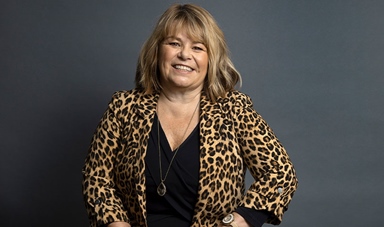Loading component...
At a glance
When COVID-19 put the brakes on live music performances last year, the specialised services of Sorrento Strategic Accounting were needed more than ever.
The Perth-based practice has approximately 900 clients in the music industry – from emerging songwriters to platinum-selling performers – and the pandemic restrictions caused their income to dry up almost overnight.
“The music industry basically shut down on 19 March 2020, when live events were cancelled,” says Kylie Thompson FCPA, who started Sorrento Strategic Accounting in her lounge room in 1998.
“Several clients were in the middle of global and domestic tours and incurred over A$1 million in shutdown costs in one night.”
Finding a rhythm
Few accountants know the inside workings of Australia’s music industry better than Thompson.
A board member of West Australian Music, she was nominated for a Golden WAMi at the West Australian Music Industry Awards last year for services to the field.
Her practice is also a strategic partner of Support Act, a charity that provides crisis relief services to music industry workers experiencing physical or mental health concerns.
Prior to starting her own practice, Thompson worked for a firm that specialised in the arts and says the experience laid the foundation for her music industry expertise. “A couple of my clients were in bands and, when I started my own practice, they recommended me to others.”
Thompson’s first client was ARIA award-winning musician John Butler, who was then a busker on the streets of Fremantle.
“That helped me hone my specialist skills in the music industry, because I had someone who went from busking to global fame,” she says. “John’s still a very loyal client.”
Number one fan
Sorrento Strategic Accounting’s services range from tax compliance to financial reporting for music tours and royalty income streams.
The practice also has a bookkeeping and financial planning services offshoot.
While much of her business has grown through word of mouth, Thompson has also worked to increase her profile within the city’s broader music industry.
“When my youngest child started high school about seven years ago, I started getting more involved in the music scene in Perth, doing workshops and talking at industry events about keeping tax records and things like that.”
Social media has also been a valuable tool for growth.
“Facebook is a big friend of mine, and “I publish anything to do with the music industry,” she says.
“I go to at least one live music gig every weekend, so I can see my clients perform and understand the kind of music they play. I film parts of the gigs and put it on Facebook, so they know I’m there, and it gives them a bit of promotion as well.”
CPA Library
After 23 years in business, Thompson only recently set up her first office. She employs five people and is continuing to develop her practice processes.
“We’ve really embraced cloud accounting, and we’ve gone to fixed-price billing,” she says. “The more we use technology, the more time we have to spend with our clients, because that’s what is really important in accounting. The past 12 months have taught us that we’ve got to be there for them.”
At the peak of the pandemic, Thompson was assisting with 150 JobKeeper registrations for sole practitioners and businesses, and the practice distributed more than A$5.3 million in stimulus payments to clients.
“In the first three months of COVID-19, I was pretty much on call 24/7,” she says. “There was an immediate loss of income for my clients, but there was an added complexity. All of a sudden, musicians could see how fragile their industry is.”
As the industry continues to recover from the shock of COVID-19, Thompson is focused on helping clients fine-tune their finances.
“I understand how to make the business side of music run more efficiently,” she says. “Doing the numbers and tax returns doesn’t really gel with a lot of creative minds, so I can take much of the stress out of that, and I think they love the fact that I’ve got all it sorted for them.”
One piece of advice
“You can’t just care about the numbers. You’ve got to appreciate the full picture about a person’s business to really make a difference. I also believe that empathy is such an important quality for accountants these days.”

